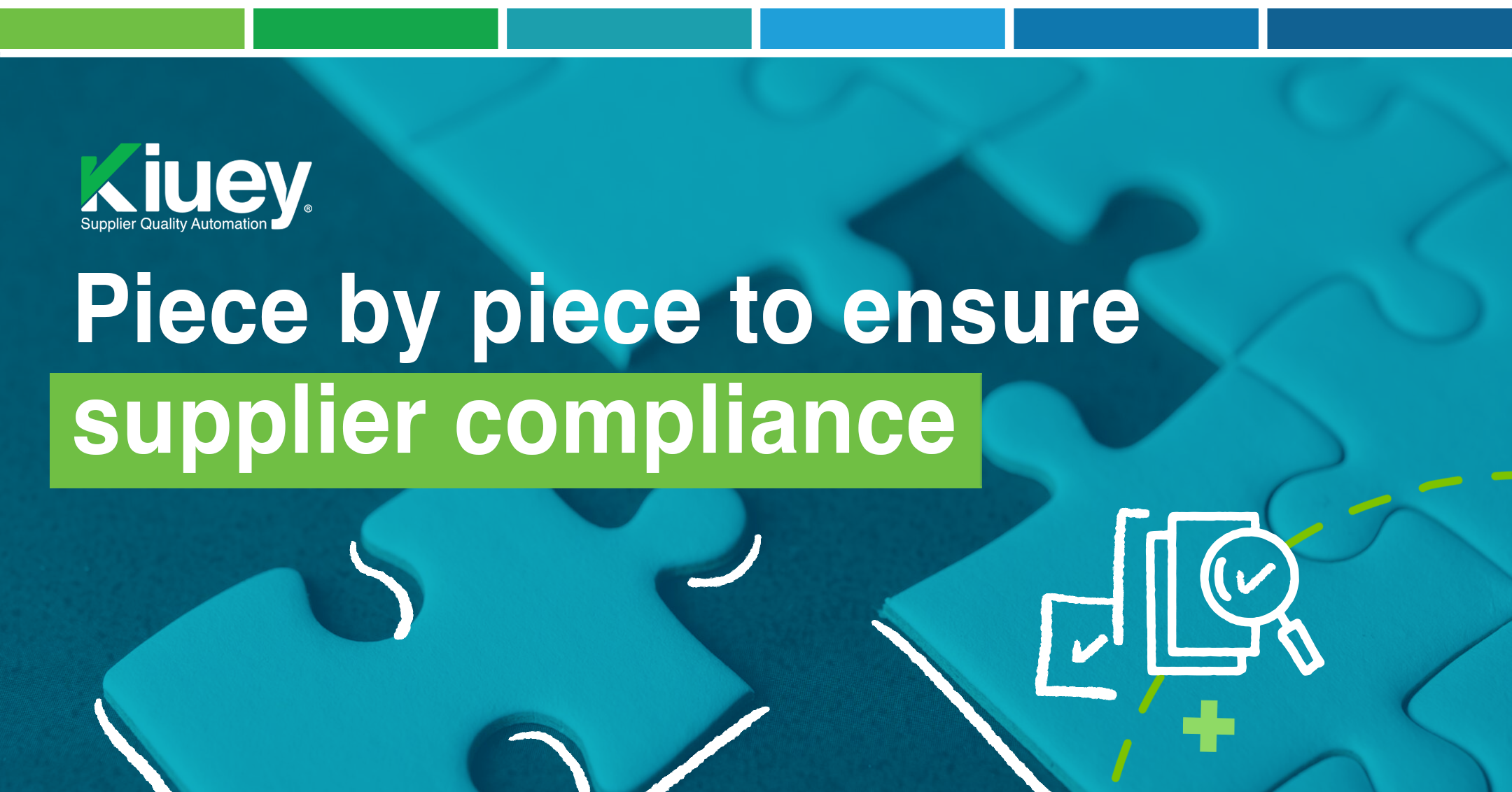
April 30, 2024
The manufacturing industry thrives on a well-oiled supply chain. Raw materials, parts, and components flow seamlessly from suppliers to production lines, ensuring finished goods reach customers on time and within budget. But this smooth flow hinges on a crucial factor: supplier compliance.
Supplier compliance is the process of guaranteeing that your suppliers adhere to a set of standards and requirements. These standards can be broadly categorized into two main areas: meeting external regulations and fulfilling your internal needs. By effectively managing both aspects, manufacturers can build a robust and reliable supply chain that minimizes risks and fosters long-term success.
Meeting External Requirements: Keeping Up with Regulations
The first pillar of supplier compliance involves ensuring your suppliers operate within the legal and regulatory framework set by governments and industry bodies. These external requirements encompass a wide range of areas, including:
- Safety: Manufacturing facilities must adhere to strict safety protocols to protect workers and prevent accidents. Supplier compliance programs should verify that suppliers have proper safety measures in place, including training programs, hazard identification procedures, and emergency response plans.
- Quality: Product quality is paramount in manufacturing. Regulations may dictate specific quality control procedures suppliers must follow. Your compliance program can involve reviewing supplier quality management systems, conducting audits, and requiring documentation to ensure consistent quality in the materials and parts you receive.
- Environment: Environmental regulations are becoming increasingly stringent. Supplier compliance programs may need to assess a supplier’s environmental practices, including waste management, energy efficiency, and responsible sourcing of materials.
- Labor Practices: Regulations often mandate fair labor practices, including minimum wage, working hours, and anti-discrimination policies. Supplier compliance programs can involve requesting documentation and conducting audits to verify that suppliers adhere to ethical labor standards.
The specific external requirements will vary depending on your industry, location, and the nature of the materials you source. Staying informed about these regulations is crucial, and your supplier compliance program should be adaptable to incorporate any changes.
Meeting Your Internal Needs: Building a Strong Partnership
Beyond external regulations, manufacturers have their own specific needs and expectations from suppliers. These internal requirements form the second pillar of compliance and can encompass various aspects:
- On-Time Delivery: Manufacturing schedules rely on timely deliveries. SC programs can involve assessing a supplier’s track record, production capacity, and inventory management practices. Clear communication and performance metrics can help ensure on-time deliveries and minimize production delays.
- Cost Management: Manufacturing profitability depends on cost control. Supplier compliance programs can involve negotiating competitive pricing, evaluating supplier cost structures, and implementing procedures to optimize inventory levels.
- Communication and Collaboration: Effective communication is essential for a smooth supply chain. Supplier compliance programs can establish clear communication channels, define expectations for responsiveness, and foster a collaborative relationship with suppliers.
- Innovation and Continuous Improvement: The manufacturing landscape is constantly evolving. Supplier compliance programs can encourage suppliers to invest in innovation and explore ways to improve product quality, efficiency, and overall value delivered.
- Ethical Sourcing: Many manufacturers prioritize ethical sourcing practices. Supplier compliance programs can involve assessing a supplier’s commitment to fair labor practices, responsible conflict mineral sourcing, and environmental sustainability.
Building a Robust Supplier Compliance Program
To effectively manage both external requirements and internal needs, manufacturers can implement a comprehensive program. Here are some key steps to consider:
- Develop a Supplier Code of Conduct: This document outlines your company’s expectations regarding quality, safety, environmental practices, and labor standards.
- Supplier Onboarding and Risk Assessment: Evaluate potential suppliers based on their capabilities, compliance history, and potential risks.
- Regular Audits and Monitoring: Conduct periodic audits to verify supplier compliance with your code of conduct and external regulations.
- Communication and Collaboration: Maintain open communication channels with suppliers, address any concerns promptly, and work together to find solutions.
- Continuous Improvement: Regularly review and update your supplier compliance program to adapt to changing regulations and your evolving needs.
Conclusion: The Benefits Overall
We can conclude that, by investing in supplier compliance, manufacturers can reap significant benefits:
- Reduced Risk: A compliant supply chain minimizes the risk of disruptions due to safety issues, regulatory violations, or labor disputes.
- Improved Quality and Efficiency: Supplier compliance ensures consistent quality in materials and parts, leading to fewer defects and production delays.
- Enhanced Brand Reputation: A commitment to ethical sourcing and responsible manufacturing practices strengthens your brand image and consumer trust.
- Cost Savings: Supplier compliance programs can help identify potential cost efficiencies through better pricing negotiations and optimized inventory management.
- Stronger Supplier Relationships: Building trust and collaboration with compliant suppliers fosters long-term partnerships that benefit both parties.
Subscribe to our newsletter.
Your go-to destination for insights, best practices, and innovative solutions in supplier quality assurance.Recent Posts
Robots in manufacturing: from AI to cobots
July 10, 2024
Categories
Tags
Let's talk to see how PPAP Manager can help your company to save time and money.






